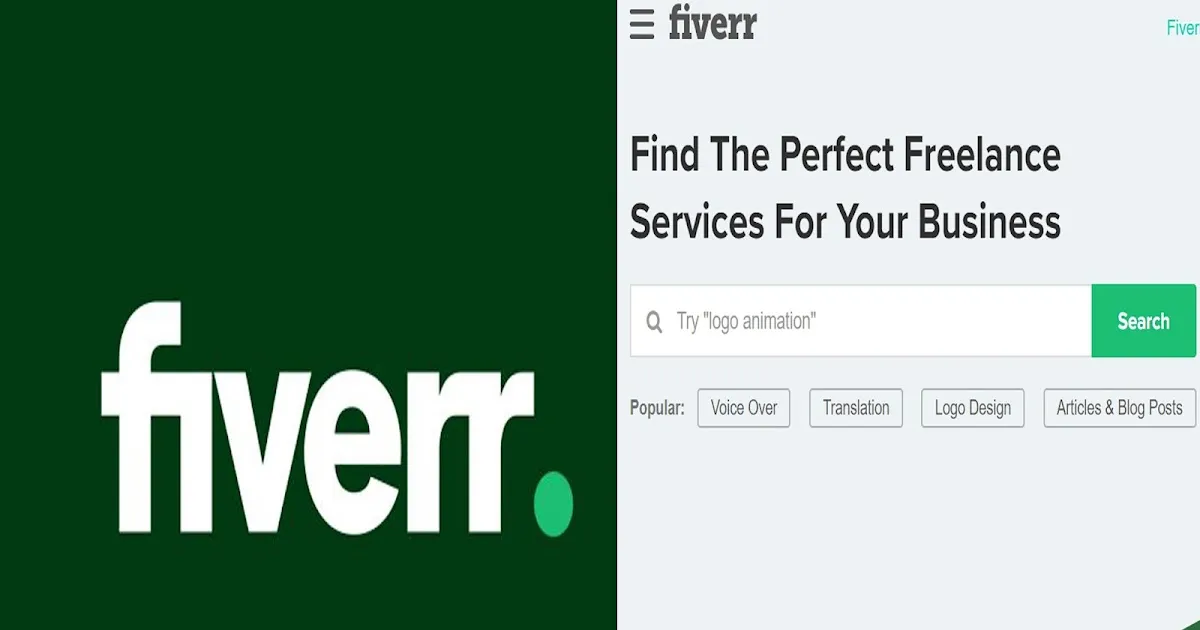In today’s digital age, freelancing platforms like Fiverr have revolutionized the way we hire talent and offer services. As the gig economy grows, questions about the legal protection of these platforms arise. One of the most pressing inquiries is whether Fiverr itself is patented. In this post, we’ll dive deep into the world of patents and explore how they relate to freelancing platforms like Fiverr.
The Concept of Patents

When we talk about patents, we're diving into the realm of intellectual property law. A patent is essentially a legal right granted for an invention, allowing the patent holder to exclude others from making, using, or selling that invention without permission. Let’s unpack the concept further:
- Types of Patents:
- Utility Patents: These are the most common and cover new inventions or functional improvements of existing inventions.
- Design Patents: This type protects the ornamental design of an item, focusing on how it looks rather than how it works.
- Plant Patents: These are granted for new varieties of plants that can be asexually reproduced.
- Duration: Typically, a patent lasts for 20 years from the filing date for utility patents and 15 years for design patents. After this period, the protection expires, and the invention enters the public domain.
- Requirements: For an invention to be patentable, it must be novel, non-obvious, and useful. This means that it must be distinctly different from anything already known, not a straightforward development of prior art, and must serve a practical purpose.
- Process:
- Research and Development: Ensure your invention meets the requirements.
- File an Application: Submit a detailed application including claims, drawings, and descriptions.
- Examination: The patent office reviews your application to confirm patentability.
- Grant: If approved, you receive the patent and can enforce your rights.
Understanding patents is crucial, especially for platforms like Fiverr that rely heavily on unique ideas and innovations. In the following sections, we'll explore how this applies to Fiverr and whether its underlying technology holds any patented features.
Also Read This: How to Launch Your Career as a Freelance Film Editor
Fiverr: An Overview

Fiverr is a popular online marketplace that connects freelancers with clients who are looking for a variety of services. Established in 2010, it has grown exponentially and now boasts millions of users from around the globe. But what makes Fiverr unique? Well, it operates on a simple premise: services start at just $5, making it an attractive option for both buyers and sellers. The platform covers a wide range of categories, including:
- Graphic Design
- Writing & Translation
- Video & Animation
- Music & Audio
- Programming & Tech
- Business
- Marketing
Freelancers, often referred to as "sellers," can list their services, known as "gigs," and set different price tiers depending on the complexity and time required. This flexibility allows them to showcase their skills and cater to a varied clientele.
One of the standout features of Fiverr is its user-friendly interface, which simplifies the browsing and purchasing processes. Buyers can quickly find services that meet their needs, and sellers have the autonomy to market their offerings creatively. The platform also includes a rating system that helps build trust within its community, ensuring that quality service is a priority.
Furthermore, Fiverr is continuously evolving. They've introduced additional features over the years, such as the Fiverr Pro program, where top-tier professionals offer premium services, and Fiverr Business, tailored specifically for teams and organizations. These expansions illustrate Fiverr's commitment to enhancing the freelancing experience!
Also Read This: How Do I Contact Fiverr: A Comprehensive Guide
Patents in the Freelancing Industry

When discussing the legality of businesses, particularly in the tech-savvy world of freelancing, patents often surface as a point of contention. But what does it really mean for a platform like Fiverr to be patented, and why should it matter to freelancers and clients alike?
In essence, a patent is a legal protection granted for an invention or a unique process. It allows the patent holder exclusive rights to utilize and sell the innovation for a specified period, typically 20 years. In the context of the freelancing industry, this could encompass various aspects, including:
- Innovative software algorithms that streamline transactions
- Unique methods of matchmaking freelancers with clients
- Novel ways to manage payments or contracts between parties
So, how does this affect platforms like Fiverr? Well, while Fiverr may not hold specific patents, many of its features could be part of a larger ecosystem of patented ideas that protect the intellectual property of their developers. This landscape can also influence competition; if one platform successfully patents a process, it could limit what others are able to do.
Additionally, trademark protections come into play, allowing companies to protect brand elements such as logos or names. This underscores why freelancers and clients should be cautious and do their research before fully committing to any service. Understanding the legal landscape helps both parties navigate potential pitfalls and embrace the opportunities inherent in the freelance world.
Also Read This: Can International Students Work on Fiverr?
Is Fiverr Patented?
When diving into the world of freelancing platforms, the question of whether Fiverr is patented often comes up. To clarify: Fiverr itself, as a marketplace connecting freelancers with clients, isn't patented in the traditional sense of holding a patent on a physical invention or an innovative process. However, it's essential to understand the nuances around this topic.
Fiverr is a unique platform that leverages various technologies and business models to create a seamless user experience. While the platform may have certain proprietary technologies or features that are protected by copyrights and trademarks, it doesn't hold a patent on the overarching idea of freelance marketplaces. In fact, many features of Fiverr, like gig offerings and service listings, are common practices across various freelancing platforms.
Here are a few points to consider regarding Fiverr's legal protections:
- Trademarks: Fiverr has registered trademarks that protect its brand name and logo from being used by other businesses, ensuring that customers can identify their services easily.
- Copyrights: The content, design, and methodologies used by Fiverr are protected under copyright laws, preventing others from copying its unique elements.
- Terms of Service: Fiverr, like other platforms, has its own terms of service outlining the rights and responsibilities of users, which include stipulations about intellectual property.
In summary, while Fiverr may not be patented in the conventional sense, it certainly takes steps to protect its brand and unique offerings through trademarks, copyrights, and other legal measures. This approach promotes innovation while fostering a competitive environment in the freelancing sector.
Also Read This: How Long It Takes to Become a Successful Freelance Writer
Alternatives to Fiverr: Are They Patented?
As the gig economy continues to expand, numerous alternatives to Fiverr have emerged, each with its own set of features and business models. It's natural for users to wonder whether these platforms are similarly patented or protected in any way.
Most freelance platforms, such as Upwork, Freelancer, and Guru, operate under the same legal landscape as Fiverr. While they may not hold patents on the concept of freelancing itself, they often have proprietary technologies or processes that could be patentable. Here’s a quick overview of some popular Fiverr alternatives and their legal protections:
| Platform | Trademarks | Copyrights | Patents |
|---|---|---|---|
| Upwork | Yes | Yes | No known patents |
| Freelancer | Yes | Yes | No known patents |
| Guru | Yes | Yes | No known patents |
It's worth noting that while these platforms do not hold patents on their entire business models, they may have patented specific technologies or methods that set them apart from one another. This legal framework ensures competition while maintaining the uniqueness of each platform.
In conclusion, just like Fiverr, its competitors are not patented in their entirety. However, they implement various legal protections through trademarks and copyrights to safeguard their distinct identities and offerings in the ever-evolving freelancing landscape.
Also Read This: How to Hire a Fiverr Designer: A Comprehensive Guide
The Implications of Patents on Freelancing Platforms
When we talk about patents in the context of freelancing platforms like Fiverr, it can feel a bit complex. But, let's break it down. Patents can have profound implications for the way these platforms operate, and understanding these implications is crucial for both freelancers and clients.
First off, *patents encourage innovation. When a company is granted a patent, it means they have the exclusive rights to a particular invention or technology for a set period. This exclusivity can motivate companies to invest in research and develop new and improved features that enhance user experience. For instance, if Fiverr holds a patent on a specific algorithm that matches clients with freelancers, they can continually refine it without worrying about competitors copying their approach.
On the flip side, patents can also lead to increased costs* for freelancers and clients. Companies holding patents may charge higher fees for using their patented technology or features. This can flow down to freelancers who might need to pay for access to certain tools or services to stay competitive.
Furthermore, the legal landscape becomes more complicated with patents. If a platform like Fiverr were to infringe on another company's patent, it could face lengthy and costly lawsuits. This can not only harm the platform’s reputation but also disrupt service and affect freelancers and clients alike.
In summary, the implications of patents on freelancing platforms are double-edged. They can drive innovation but also come with challenges that can impact costs and legal standings. Knowledge is power, so understanding these aspects can help freelancers and clients navigate the freelance economy more effectively.
Conclusion
As we've explored throughout this discussion, the question of whether Fiverr is patented leads us into a broader conversation about the implications of patents on freelancing platforms. While Fiverr, as of now, may not have a broad patent portfolio, the realities of patents within this space can't be ignored.
Understanding the legal landscape of freelancing platforms is essential for anyone involved. Whether you're a freelancer looking to market your services, or a client seeking the right talent, being aware of the potential legal impacts of patents can be a game changer. Here are a few key takeaways:
- Patents Foster Innovation: They promote the development of new technologies and features that enhance the user experience.
- Costs Can Increase: Platform fees might rise due to the costs associated with patented technologies.
- Legal Risks Exist: The risk of infringement lawsuits can pose a challenge for both platforms and users, affecting business operations.
In conclusion, while patents play a significant role in the functioning of freelancing platforms, being informed and prepared can help mitigate potential risks. So, whether you’re offering services or hiring talent, staying savvy about the legal aspects, like patents, is wise for navigating the freelance world effectively!



